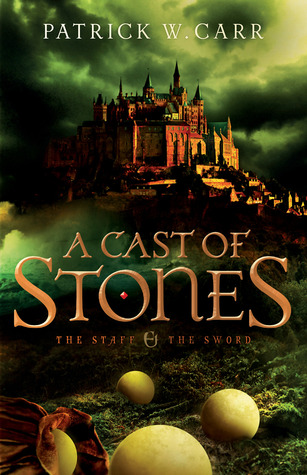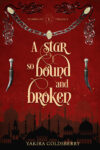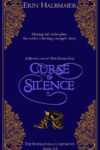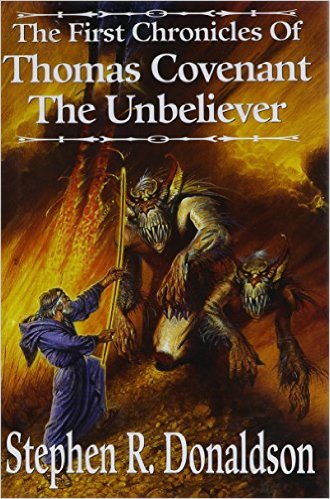From The Writers’ Toolbox: Flawed Characters Can Be Too Flawed
I wanted to chuck the book, but it belonged to my friend. I wanted to quit reading, at least, but my friend promised me the story would get better. And he was right. Had he not convinced me, I would have missed out on one of my favorite series—Stephen Donaldson’s The Chronicles Of Thomas Covenant The Unbeliever. In truth, the main character acted heinously, and I didn’t want to read about him.
First, the protagonist, Thomas Covenant, was a sick, sad man. He had leprosy, a disease that few understood and fewer tolerated. He was isolated from society, and to a degree, isolated from himself because his illness destroyed his nerve endings, robbing him of the ability to feel. But one day, he fell into a parallel world where he was no longer sick. Believing that what he was experiencing was not real, he did a horrible thing. He raped a girl who had befriended him.
See why I wanted to chuck the book? Thomas Covenant was not someone I liked, and I really didn’t care about what happened to him. I know of people who, in fact, did stop reading that book and never picked it up again.
The point is simple: to be believable, characters need flaws, but if their flaws overshadow their higher nature, readers may not care enough to continue on the reading journey with them.
As Angela Ackerman put it in an article for Writer’s Digest, “When Flaws Go Too Far: Avoiding Unlikable Characters,”
There is a tipping point for flaws, however. A bit too much snark or insensitive internal narrative and the character slips into unlikable territory. Too much surliness, negativity, secretiveness or an overblown reaction and the reader will disconnect, frustrated by character’s narrow range.
I’ve had occasion more than once to read a novel written in first person—which is fine, except I didn’t care for the protagonist. The character was either too whiny or too morose or complained too much or thought ill of his colleagues all the time or was focused on her own cares to a point of distraction. Especially in a novel in which the reader must live in the character’s head for upwards of three hundred pages, an unlikable protagonist is a problem.
But a story is about character development—how a person changes. Does the young boy learn responsibility, does the woman allow herself to love again, will the hero find the strength within to over come? These are storylines which demand a character grows or at least admits failure.
The point is, the story begins with a young boy who is irresponsible, a woman who is cold and stand-offish, a weak person thrust into a situation requiring strength. In short, the story starts with a character in need because of his flaw.
How, then, is a writer to portray this flaw without making it fatal for the book? How can a broken, warped, imperfect character still be someone who engages readers?
First, the character’s flaw must have an understandable reason for existence. Who hurt the character or failed him or bullied him? Who used her or betrayed her or demanded more than she could handle? If readers understand why a character acts badly, often they will be inclined to tolerate more. (Which, by the way, Stephen Donaldson did in the Thomas Covenant books).
Furthermore, if the character’s flaw is a result of his own suffering, readers may be willing to forgive him and hope for change.
Showing the character’s backstory provides his motive, including the motive for his flawed actions or angsty attitudes. The key to using what happened in the past in this way is to treat it like any other bit of backstory. It must not be delivered up front or in lengthy paragraphs or presented in a speech. It must serve the plot. It must only be delivered when readers are ready and want to know what happened before. (For more information about backstory see posts here: Backstory).
Besides giving reasons for a character’s flaws, another way an author can keep those from overshadowing a character is by counterbalancing them with winsome traits.
Ackerman explains:
no matter how impatient, uptight, angsty or spoiled your character is, hint to the reader that there’s more beneath the surface. A small action or internal observation can show the character in a positive light and should happen in the first scene (frequently referred to as a Save The Cat moment.) It can be a positive quality, like a great sense of humor, or a simple act that shows something redeeming about the character.
 In the fantasy trilogy by Patrick Carr, The Staff & The Sword fantasy, the story opens in book one, A Cast of Stones, with a character, Errol Stone, who is drunk. He, in fact, is the main character, and he isn’t just drunk on that one day. He happens to be the town drunk. How is a character with such an obvious and dominating flaw someone readers care about?
In the fantasy trilogy by Patrick Carr, The Staff & The Sword fantasy, the story opens in book one, A Cast of Stones, with a character, Errol Stone, who is drunk. He, in fact, is the main character, and he isn’t just drunk on that one day. He happens to be the town drunk. How is a character with such an obvious and dominating flaw someone readers care about?
First Carr showed other characters—ones who were in respected positions in the story—who sympathized with Errol Stone. They even did all they could to help him. Some provided him with work, some allowed him a place to sleep off his drunk.
They also acknowledged his value and identified an area in which he excelled beyond anyone else in the village. In other words, readers see through their eyes that Errol has value.
Further, Errol Stone suffers beatings at the hand of the local pater, ostensibly to cure him of his public drunkenness. Very soon it’s clear that Errol is suffering unfair ill treatment.
Fourth, Errol faces a life-and-death surprise attack and shows by his wit and agility that he has skills a reader can admire. The reader learns there’s more to him than his addiction.
This latter hints at one of the points Ackerman mentions: if a character faces hardship, readers are more willing to be patient with his bad behavior. However, his reaction to hardship must give some reason to believe he can conquer what he’s up against.
If the hero has a rough road ahead, the reader makes allowances for his behavior, as long as he doesn’t wallow in gloom and doom. It isn’t hardship that creates empathy, it’s how a character behaves despite that hardship, giving us a window into who he really is.
Errol Stone not only survived an attack, but the next day his quick thinking and decisive action saved the lives of two other men. Clearly he was more than the town drunk, and I for one was cheering for him to overcome on many levels. Patrick Carr had made sure that his flawed protagonist didn’t fail by being too flawed.









































Hm…yeah. Likability is often less about the flaw or idea of the character, and more about how those things are expressed through writing. Sometimes it’s a matter of the reader too, though. Not every book or character is right for every reader, so sometimes no matter how well an author expresses something, a character will still be unlikable to some. Unfortunately a lot of people are not really willing to truly understand others, whether they’re book characters or individuals they know in real life. So someone can complain about a char’s behavior when in reality the reader isn’t accurately interpreting the behaviors in the first place. But hopefully the reader grows past that over time.
I’ve found that depicting a realistic struggle and showing rather than telling helps a lot with likability. When someone has a flaw, it will affect their life in ways they don’t even realize. Showing that in a realistic manner can be fascinating and can even built sympathy in the reader, especially if the struggle centers around the char understanding his flaws and trying to overcome them. Also, if a char basically says ‘woe is me!’ every two seconds, that’s basically ‘telling’ and will often be very grating for the audience. But if the author instead concentrates on making the events unfold in an artful way and then has the char react with grief and anger that feels more realistic to the situation, that’s more akin to ‘showing’ the reader and is more likely to be received better.